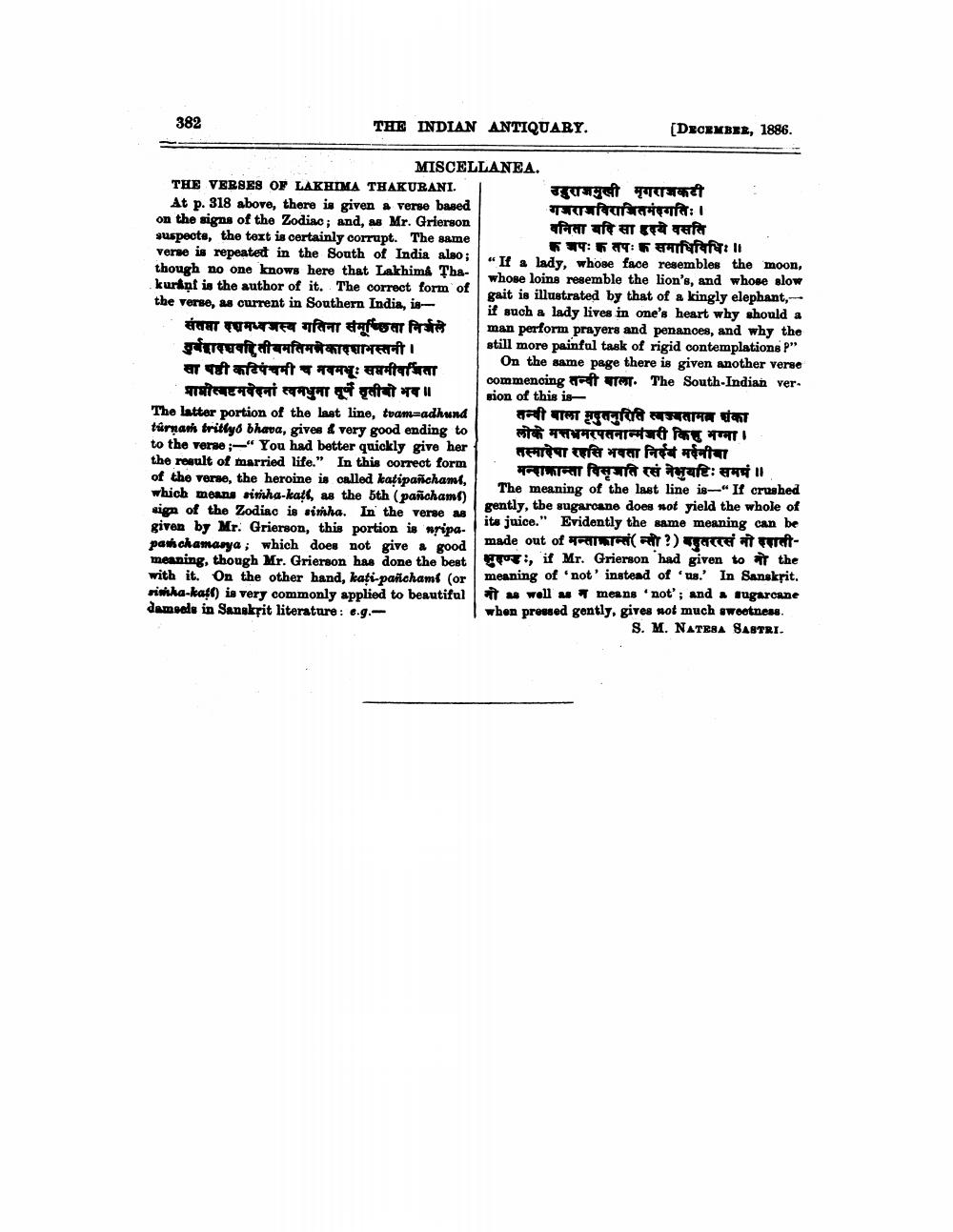________________
382
THE INDIAN ANTIQUARY.
MISCELLANEA.
[DECEMBER, 1886.
THE VERSES OF LAKHIMA THAKURANI. At p. 318 above, there is given a verse based on the signs of the Zodiac; and, as Mr. Grierson suspects, the text is certainly corrupt. The same verse is repeated in the South of India also; though no one knows here that Lakhima Thakurant is the author of it. The correct form of the verse, as current in Southern India, is
उडुराजमुखी मृगराजकरी गजराजविराजितमंदगतिः । वनिता यदि सा हृदये वसति क अपः क तपः क समाधिविधिः ।। "If a lady, whose face resembles the moon, gait is illustrated by that of a kingly elephant, whose loins resemble the lion's, and whose slow if such a lady lives in one's heart why should a man perform prayers and penances, and why the still more painful task of rigid contemplations ?" On the same page there is given another verse commencing Ter. The South-Indian ver. sion of this is
संतता दचमध्वजस्य गतिना संमूर्च्छिता निर्जले gizemniceftwaff सापटी कटिपंचमी च नवमभूः सप्तमीवर्जिता प्राभीस्वष्टमवेदनां त्वमधुना तूर्णे तृतीयो भव ॥ The latter portion of the last line, team-adhund turnam trittyó bhava, gives & very good ending to to the verse;" You had better quickly give her the result of married life." In this correct form of the verse, the heroine is called kaṭipañchami, which means simha-katt, as the 5th (pañchams) sign of the Zodiac is simha. In the verse as given by Mr. Grierson, this portion is ripa. paichamanya ; which does not give a good meaning, though Mr. Grierson has done the best, if Mr. Grierson had given to with it. On the other hand, kați-pañchamt (or rimha-katt) is very commonly applied to beautiful damsels in Sanskrit literature: e.g.
तन्वी बाला मृदुतनुरिति स्वज्यतामत्र शंका लोके मतभ्रमरपतनान्मंजरी किछु भग्ना । तस्मादेषा रहसि भवता निर्दय मर्दनीबा मन्दाक्रान्ता विसृजति रसं नेभुयष्टिः समयं ॥ The meaning of the last line is "If crushed
gently, the sugarcane does not yield the whole of
its juice." Evidently the same meaning can be made out of मन्ताक्रान्तं (न्ती ?) बहुतररसं नो ददाती - the meaning of 'not' instead of us.' In Sanskrit. as well as means 'not'; and a sugarcane when pressed gently, gives not much sweetness. S. M. NATESA SASTRI.




